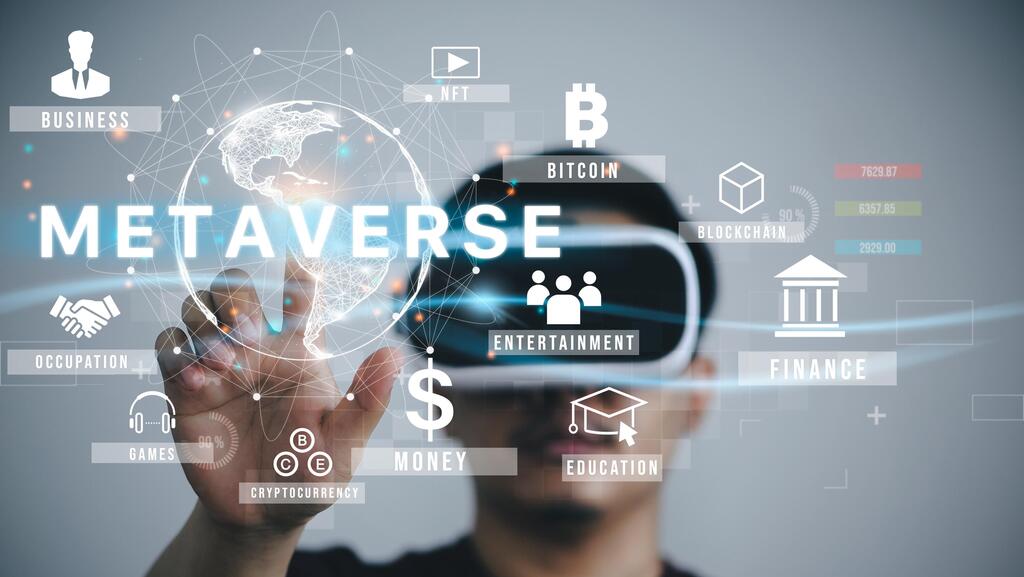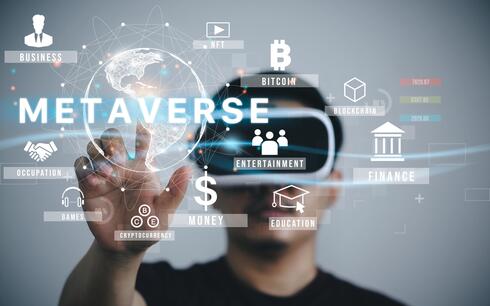
Opinion
Legal uncertainty holding back metaverse adoption
"More than just another iteration of the internet, the metaverse, and the technologies employed to access it, create a host of potentially novel legal concerns that ought to be dealt with sooner rather than later if we want multinationals to invest in this space," writes Dov Greenbaum
According to Dick Wolf, the creator of the popular long-running television police procedural franchise Law and Order, known for its iconic dun-dun sound, “\[i\]n the criminal justice system, the people are represented by two separate yet equally important groups: The police, who investigate crime, and the …attorneys.” Coincidentally, these two groups have just broadened their metaverse footprints.
Specifically, Interpol, the International Criminal Police Organization charged with facilitating worldwide police cooperation and the white shoe law firm, Arrent Fox. In both cases, these respective institutions have invested heavily in the metaverse, possibly in the hope that the geographically, physically or otherwise restricted visitors can now access their virtual offices.
These two institutions are not alone in pouring money into metaverse property. Thus far, billions of dollars have been spent in accumulating digital property in the metaverse. The current negative press notwithstanding, banks and investment houses have remained bullish on the future of this technology platform.
Thus, even as Meta continues to invest billions and lose millions, some amongst the hundreds of thousands of monthly active users are still finding ways to make money, even as mainstream industries struggle to find value.
As the metaverse matures over the next decade and the technologies and infrastructure already being planned, designed and built by many of the largest Silicon Valley companies, come online, there will be numerous business opportunities including advertising, event hosting, gaming, and education. But until then, perhaps one of the primary issues holding back larger corporations right now is the legal uncertainty of their metaverse operations.
More than just another iteration of the internet, the metaverse, and the technologies employed to access it, create a host of potentially novel legal concerns that ought to be dealt with sooner rather than later if we want multinationals to invest in this space.
Consider the foundational issue of jurisdiction, the power granted to a particular court and their legal system to make judgments and legal decisons. When a tort or crime is committed, usually the relevant courts associated with the location of the incident preside over the case, applying their local law. But, like the internet that brings together individuals from across the planet, the altercations that might occur in the metaverse could implicate multiple jurisdictions.
In assessing which legal system is relevant to a problematic incident in the metaverse, arguably we could look to the law of the location where the metaverse servers are held or where the particular platform company is incorporated, or the law of the different jurisdictions where the physical individuals each respectively reside, or the choice of law provisions in the terms of service that are agreed to by the users of the metaverse, or something else entirely. Notably, on the issue of terms of service, many of the worlds within the metaverse are decentralized in their governance; they are run as quasi-direct democracies where shareholder whims are effectuated automatically by smart contracts. This can result in a lack of permanence and perhaps logic for those terms of service, and their choice of law provisions.
Uncertainty in legal jurisdiction is not novel per se, and many industries have dealt with similar concerns arising in outer space, Antarctica, and the deep ocean. However, one of the defining characteristics of the metaverse – i.e., its ability to allow for interoperable, fluid, cross-platform synergy-- makes the issues a bit more complicated as there could be multiple parties in different countries in the shared virtual space of different corporate metaverse platforms simultaneously involved in a legal kerfuffle.
Even once we figure out jurisdictional issues, it is not clear that all activities currently labeled as crimes in the real world would be construed as crimes in the metaverse. This is particularly the case when a ‘crime’ in the metaverse is treated by the system as a violation of the contract to terms of service by the governing organization of the particular metaverse platform rather than an actual violation of a penal code. Beyond semantics, there are significant legal differences as to whether an action is a criminal violation or a civil violation. For example, in a civil tort, the victim can waive liability or consent to the tort, as opposed to a crime where consent and waiver are not always a defense.
Another semantic difference that has real legal differences relates to property rentals in the metaverse. In the real world, a renter is often granted legal protections from any unfair practices of their landlords. In the metaverse where property ownership often comes in the form of an NFT, a rental of a property might be construed as an intellectual property license for that NFT, not an actual rental agreement with all its concomitant protections.
In addition to these legal concerns associated with property in the metaverse, the virtual reality devices used to enter some parts of the metaverse, like Meta’s new Oculus Quest Pro, might also raise novel privacy concerns. The latest technology is supposedly capable of reading and recreating minor facial movements, ostensibly to make the avatars in their virtual worlds more lifelike. However, this collected biometric data is often more protected than the standard information collected by standard internet interfaces. In addition to this biometric data, all of the many interactions, including where an individual is looking within the metaverse can be recorded, creating yet another privacy concern.
Related articles:
It’s not entirely the Wild West in the metaverse, however. To varying degrees, many of the relevant legal concerns relating to things like intellectual property are being worked on by the Open Metaverse Alliance (OMA3) consortium, operated as a decentralized autonomous organization (DAO) and the more mainstream Metaverse Standards Forum (MSF). These efforts could go a long way in ameliorating the concerns of big business.
But the metaverse isn’t only for business. Recently, Israeli Ambassador Akiva Tor representing the Israeli embassy in South Korea helped launch what may be the world’s first diplomatic mission in the metaverse, designed for, among other things, multicultural events such as film festivals. This platform, coupled with emerging technology like the aforementioned new Quest Pro, point to an exciting novel use of the metaverse wherein diplomats who might fail to read the precise body language, intonations and other physical cues of their counterparts in the ‘old’ internet, can now do so within the metaverse, hopefully with very positive results.
Prof. Dov Greenbaum is the director of the Zvi Meitar Institute for Legal Implications of Emerging Technologies at the Harry Radzyner Law School, at Reichman University.
